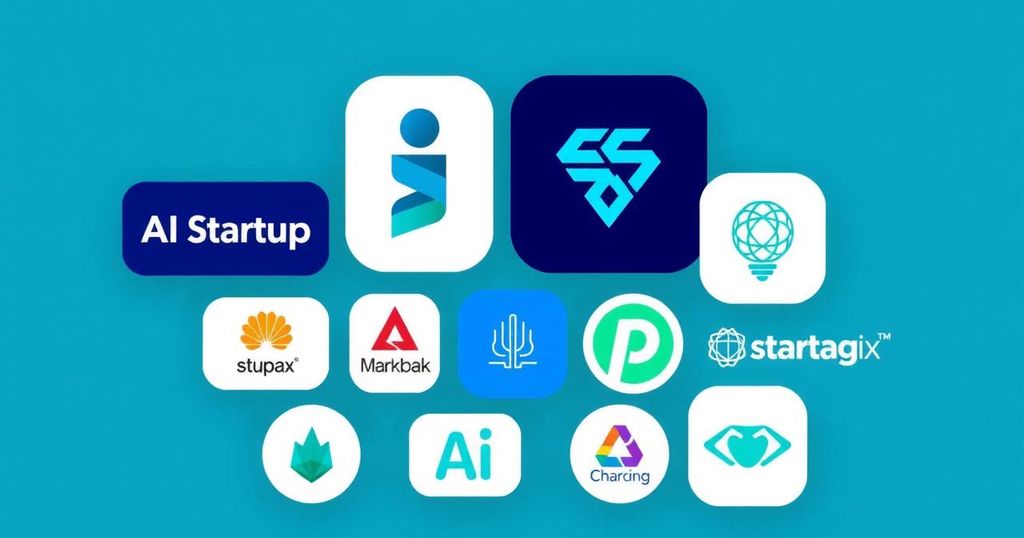AI Unicorns: 10 Startups With Billion-Dollar Valuations and Tiny Teams
A new report identifies 10 AI startups achieving billion-dollar valuations with teams of 50 employees or fewer, showcasing how AI allows for exponential growth with minimal manpower. Major players include Safe Superintelligence, 0G Labs, and Magic, among others. This trend hints at a future where small teams can match the impact of larger firms in the tech industry.
In today’s rapidly evolving tech landscape, AI is making waves—not just in innovation, but in how small teams can propel startups to incredible heights. A new report from Business Insider shines a light on 10 AI startup unicorns that are proving you don’t need a massive workforce to achieve billion-dollar valuations. With 50 employees or fewer, these companies are harnessing the power of AI to work smarter and, well, leaner.
Let’s start with OpenAI CEO Sam Altman. Back in February 2024, he made a bold prediction: “We’re going to see 10-person companies with billion-dollar valuations pretty soon.” He noted there’s even a friendly wager among tech CEOs on when we might see a one-person billion-dollar company—a concept once considered outlandish. Yet, here we are, as examples emerge across the globe.
Take Anysphere, creators of the coding assistant Cursor, who have seen their revenue skyrocket from $1 million to a staggering $100 million in annual recurring revenue within just a year—all while maintaining a team of fewer than 50. This kind of explosive growth showcases how the right technology can accelerate businesses like never before.
Traditionally, a growing company typically means more hires. Yet, history shows lean teams can and do succeed. Back in 2012, Facebook knocked it out of the park with its acquisition of Instagram for $1 billion, despite the photo-sharing app having only 13 employees. Fast forward to today, and we’re seeing a whole new realm of unicorns emerging.
Business Insider’s analysis, using data from PitchBook, highlights startups breaking through financial barriers with remarkably tight teams. The list includes a mix of innovative companies redefining what’s possible in AI with minimal manpower. However, it’s worth noting that PitchBook’s figures are based on VC-backed firms with disclosed employee counts that may not always be current.
First on the list, Safe Superintelligence, launched by former OpenAI chief scientist Ilya Sutskever, boasts a whopping $32 billion valuation with just 20 employees. What’s the goal here? To build AI that exceeds human intelligence, aligned with our values. Much attention has surrounded their rapid fundraising. They’ve raised $2 billion without revealing their employee counts, sparking curiosity and confidence in their mission.
Then there’s 0G Labs, or Zero Gravity Labs, a startup working on decentralized AI operating systems. Founded in 2023, it currently has around 40 employees and a valuation ringing in at $2 billion, partly due to substantial investments from venture capital.
Don’t overlook Magic, which hails from the software development sector with its advanced AI models. Their team of 20 has raised $320 million, putting their valuation at about $1.58 billion. Magic aims to simplify coding for software developers, reinventing aspects of how code is written and enhanced.
From Tokyo, Sakana AI showcases a team of 28 former Google researchers diving into evolutionary algorithms, while Skild AI, still fresh from its 2023 launch, racks up a valuation at $1.5 billion with just 25 employees, focusing on powering robots.
In Germany, Black Forest Labs is entering the scene with AI tools that produce lifelike imagery, securing a valuation of $1.28 billion with only 24 employees. Meanwhile, Accutar Biotech employs about 40 with aspirations of developing new medicines using AI. They became the oldest startup on this list, proving longevity is as important as innovation.
And elsewhere in Abu Dhabi, Andalusia Labs prides itself on developing AI technologies that make digital assets more secure, while OpenEvidence, stemming from the Mayo Clinic, empowers healthcare providers with AI tools to sort through medical research—both valued at $1 billion each with lean teams.
To round things out, World Labs, featuring a creator from ImageNet, is merging AI with 3D environments and sits neatly at a $1 billion valuation with a staff of 20. These startups, all under a roof of 50 employees, are reshaping expectations about growth and efficiency in the tech industry.
It’s a fascinating time, to say the least, with such lean teams creating immense impact. These startups are not just anomalies but possibly the forerunners of a new business model where agility and technology meet to forge vast opportunities. The future, it seems, may very well belong to those who can do more with less.
Overall, the trend of small teams in high-stakes startup environments is reshaping the landscape. From Safe Superintelligence to World Labs, these companies show that efficiency, fueled by AI, is not just a benefit but perhaps the key to dominating the market. As the tech world watches closely, these unicorns set the stage for future businesses to come.
This analysis underscores a growing trend in the startup world: that small, agile teams can leverage AI technology for substantial growth. The examples of these unicorns illustrate how innovation combined with efficiency creates massive valuation potential. As AI continues to evolve, it seems that the conventional wisdom on company size and workforce may be challenged like never before. We might just be looking at the dawn of a new era where the power of a few can rival the strength of many.
Original Source: www.businessinsider.com




Post Comment